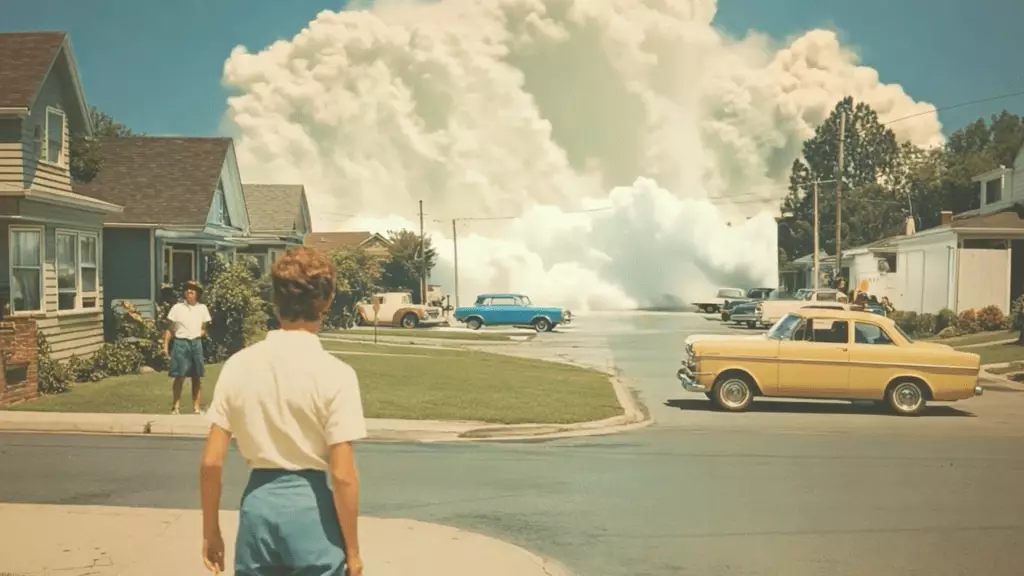The digital age, with its relentless march toward innovation, has ushered in an exhilarating yet daunting landscape for the arts, particularly film. The recent success of Jacob Adler’s “Total Pixel Space,” a mesmerizing nine-minute experimental piece that secured the top prize at the latest AI Film Festival, serves as a testament to this seismic shift. Set in the iconic Alice Tully Hall of New York’s Lincoln Center, the festival—backed by the influential AI startup Runway—showcased the transformative potential of artificial intelligence in storytelling. This collision of technology and creativity is not merely a trend but reflects a profound reconfiguration of how narratives are conceived and disseminated.
In an era where AI is proliferating into our daily existence, the implications of its integration into artistic expression cannot be overstated. Runway’s CEO, Cristóbal Valenzuela, captured the sentiment perfectly during his address to an enthusiastic audience, revealing how the number of submissions surged from 300 in 2022 to an astonishing 6,000 in the current iteration. His acknowledgment of the transformative moment this festival represents in the art world underlines a vital point: we are witnessing the dawn of a new creative epoch. When Valenzuela asserts that AI is set to fundamentally alter our cultural fabric, it rings with both excitement and apprehension.
The Illusion of Authenticity
However, while celebrating this technological boon, we must grapple with the ethical and philosophical dilemmas it introduces. The concept of creativity reshaped by AI raises uneasy questions about authorship and authenticity. Are creations birthed from algorithms genuine reflections of artistic intent, or merely sophisticated mimicries of human creativity? Steven Ellison, known by his moniker “Flying Lotus,” expressed a refreshing disdain for conventional boundaries, proposing that AI can liberate filmmakers from the constraints of preconceived notions. This “f–k around and find out” methodology may indeed bring forth imaginative works, yet it could also diminish the personal touch traditionally associated with storytelling.
Ellison’s assertions invite us to ponder the authenticity of the narratives being woven through AI applications. If films arise from playful experimentation rather than deliberate craftsmanship, do they lack the spine of human emotion? The emergent dreamlike and surreal qualities in many showcased films challenge our perceptions of narrative coherence and emotional depth, compelling us to reimagine what constitutes storytelling in our digital era.
Collaboration or Conformity?
In this evolving landscape, collaboration emerges as a double-edged sword. On one hand, AI can serve as an invaluable partner to creators, granting them access to new tools and techniques that streamline the filmmaking process. The bullish statements from Runway co-founder Alejandro Matamala Ortiz suggest aspirations toward enabling creators to produce feature-length films, marking a bold step forward. Yet, one cannot help but wonder: does this proliferation of AI methods threaten to homogenize creativity? If the tools at our disposal dictate the direction of artistic expression, could we risk standardization over innovation?
The standout runner-up film “Jailbird” taken from a documentary perspective beautifully illustrates the potential for human stories to intertwine with AI technology, while maintaining a genuine narrative essence. It showcases the mutually beneficial initiative between prisoners and chickens, emphasizing human experience even amidst the fantastical landscape of AI. This juxtaposition highlights that while AI can enhance cultural narratives, the heart of storytelling lies in its ability to resonate with audiences on an emotional level.
Bracing for a Disruptive Evolution
What this festival epitomizes, more than a celebration of artistic marvels, is a clarion call to filmmakers and audiences: a disruptive evolution is upon us, and we must navigate it thoughtfully. The excitement surrounding AI is palpable; however, it demands critical engagement. Encouraging imaginative experimentation is vital, but we must also safeguard the integrity of the storytelling craft, ensuring it remains deeply rooted in the human experience.
As we brace ourselves for this transformative wave of creativity, we must hold fast to the ideals of integrity and emotional truth. In this brave new world, the most compelling stories will be those that blend the untamed chaos of AI with the delicate threads of human narrative. The future of film is not solely a technological conquest; it is a dance between the fantastic and the authentic, with the potential to redefine the very essence of artistry.


Leave a Reply